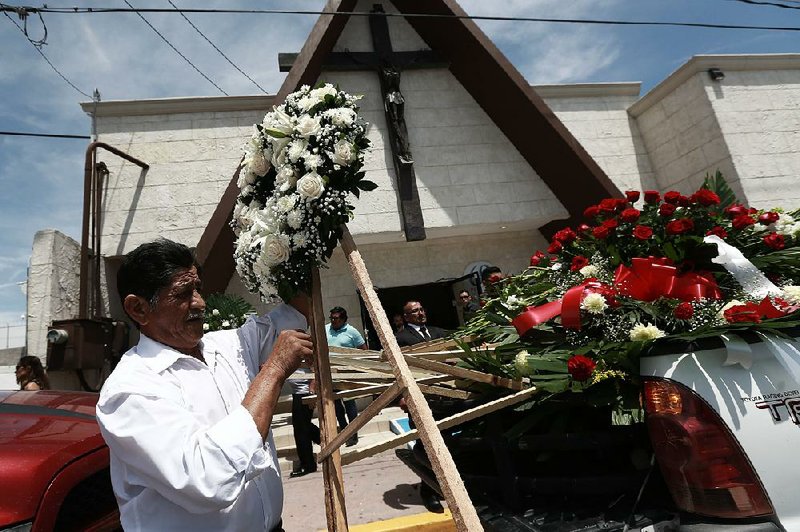MILAN -- A Spanish humanitarian ship has been stuck in the Mediterranean Sea for more than a week because no European government will offer safe harbor to the 121 migrants on board, and the vessel faces a fine of up to $1.12 million if it enters Italian waters.
The Open Arms was idle for an eighth day Friday in waters off Italy's southernmost island. The ship's dilemma is becoming increasingly common as European governments shut their doors to migrants, led by Italy's Interior Minister Matteo Salvini, who is popular for his hardline stance against migrant arrivals and who this week plunged Italy into a political crisis in an apparent play for power.
Open Arms founder Oscar Camps indicated that the vessel would avoid entering Italian waters without permission unless there is a humanitarian crisis on board, as allowed by international maritime law.
"Salvini can say what he wants, but maritime law and the courts will say what they have to say," Camps told Catalunya Radio on Wednesday. "If we have serious health problems on board ... we will enter [port] here or wherever we are, the closest place, today and any other day because we are backed by law."
Malta also refused to let the ship in, while Spain demurred, saying it is not the closest safe port, the humanitarian group said.
The EU Commission said Friday that it has not received any requests from a national government to intervene, as it typically requires. But spokeswoman Annika Breidthardt said the commission was reaching out to member states "to show solidarity." She noted a solution depended on "the willingness" of member states to step up.
Migration standoffs have persisted over the past 14 months since Italy's populist government took office and Salvini became interior minister. He blames the EU and other member states for leaving Italy alone to manage migrant arrivals for too long.
He likens rescue ships to migrant taxi services and raised the stakes this week by winning parliamentary approval for a new security decree that increased fines on ships entering Italian waters without permission to $1.12 million from $56,000. The law has been scorned by the U.N. refugee agency, which says it could deter rescue by private vessels at a moment when European government have largely halted their patrols.
Italian President Sergio Mattarella signed the decree Thursday with reservations. He noted that the steep fine is to be applied without regard for the scale of the offense, against a high court ruling on penal sanctions. By that interpretation, for example, a sailboat carrying one migrant would face the same penalty as a ship with dozens or more.
The security decree was already in the works when German Capt. Carola Rackete defied Salvini and entered an Italian port against orders of authorities, citing a state of necessity after 17 days stuck at sea with 40 rescued migrants. She is under two investigations, one for entering Italian waters against direct orders and another for allegedly aiding illegal immigration.
Besides Open Arms, just one other ship is operating in the Mediterranean. The German nongovernmental organization Sea-Eye said Friday that it was leaving the search-and-rescue zone five days after transferring 40 migrants to Malta military ships after Germany made a direct request and agreed to take some of the migrants. A Norwegian-flagged ship operated by the humanitarian group Doctors Without Borders rescued 85 migrants from a rubber dinghy off Libya on Friday -- but made no immediate request for a port.
Migrant arrivals in Italy are at about 4,042 so far this year, down 78% from last year's 18,897 and 96% from 96,847 in 2017. Many migrants continue to arrive on their own in Lampedusa, often from Tunisia, despite Salvini's campaign against humanitarian rescue ships.
Information for this article was contributed by Joseph Wilson Lorne Cooke of The Associated Press.
A Section on 08/10/2019
